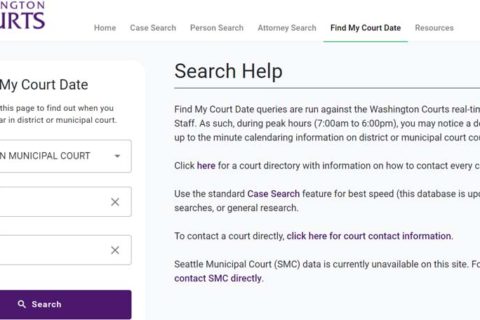RICO stands for Racketeer Influenced and Corrupt Organizations that is a federal law designed to combat organized crime in the United States. Passed in 1970, this law allows prosecution and civil penalties for racketeering activity conducted as part of an ongoing criminal enterprise.
If you are a law student and are looking for more in-depth information about the RICO Charge as material, you can try to find it in our post below. Here you go!

How Does RICO Charge Work?
Racketeer Influenced and Corrupt Organizations (RICO) law has been a threat of Mafia families or other major crime organizations in the 2020s, especially in Georgia. However, this law has recently come under fire due to its negative effect on individuals who may be considered as committing crimes on behalf of a group.
As we have mentioned, there are some activities that RICO law performs, including:
-
- Illegal gambling
- Bribery
- Kidnapping
- Murder
- Money laundering
- Counterfeiting
- Embezzlement
- Drug trafficking
- Slavery
- A host of other unsavory business practices
To convict a defendant under RICO, the government should prove that the defendant engaged in two or more instances of racketeering activity. It also proves that the defendant directly invested in, maintained an interest in or also participated in a criminal enterprise affecting interstate or foreign commerce.
The law has been used to prosecute members of the mafia, an anti-abortion group, the Hells Angels motorcycle gang and Operation Rescue, among many others.
Crimes Which Are Covered by the Rico Act
A violation of RICO happens when a person, in accordance with an enterprise, is involved in a pattern of racketeering activity. Racketeering activity includes:
-
- Arson
- Bribery
- Counterfeiting
- Distribution of a controlled substance
- Embezzlement
- Extortion
- Gambling
- Homicide
- Kidnapping
- Mail fraud
- Money laundering
- Robbery
- Wire fraud
- Witness tampering
For RICO purposes, there are supposed ‘predicate’ offenses. An individual charged with a RICO violation should have been engaging in a minimum of two predicate crimes within a 10-year time frame.
Those predicate offenses should also have been committed in connection with an enterprise. An enterprise should be a legal or an illegal one that could be a corporation or a mob. The enterprise should be a discrete entity.
Penalties for Those Crimes
Due to the act having been expanded over the years to cover any kind of enterprise-related pattern of crime, the penalties which one could face if charged are severe. As a maximum penalty, those convicted of a RICO-related crime could encounter up to 20 years of imprisonment and a fine of $250,000.
However, the individual might be sentenced to life in prison if the charge is directly related to a racketeering activity with a penalty of life imprisonment, such as homicide or drug trafficking.
As an additional penalty, the defendant probably encounters the consequences that are associated with the crime itself. It means that if convicted of committing mail fraud under the RICO Act, both RICO Penalties and mail fraud are considered.
As part of those penalties, the forfeit or seizure of those items are included:
-
- Any interest gained through this activity
- Any interest, claim, security, or property/contractual right in the enterprise associated with the activity
- Any property including unlawful debt collected or proceeds obtained through racketeering
The law also defines in what ways this property may be confiscated and defines property as follows:
-
- Physical property like homes or businesses or home
- Intangible property like securities, privileges, or claims
- Violators of these laws will also lose ownership and title to any physical property
Additionally, there was the fear in the establishment of RICO that assets associated with the enterprise might disappear before a final judgement was issued. RICO rules of procedure lets the government freeze the assets of the defendant prior to the case even going to trial.
Well, the reasoning behind this was that making the government wait until a guilty verdict was included could allow time for those assets to be well hidden.
The 35 Crimes Associated with the RICO Act
You should know that the RICO Act commonly only applies to crimes which are somehow tied to, related to or conducted on behalf of an enterprise. It means that any kind of organization, corporation or union such as politicians, churches, and nonprofits, to name a few, could be subject to a conviction for the offense included in this law.
That may be one of the main points of contention which people have with RICO that it doesn’t explicitly outline which groups are under strict scrutiny. Otherwise, it actually holds any kind of enterprise accountable for unlawful actions which may be committed in relation to or on its behalf.
Over the years, RICO has developed to cover 35 distinct crimes, including:
Larceny Crimes
-
- robbery or theft
Crimes Involving People
-
- Murder
- Kidnapping
- Slavery
- Human smuggling
- Tampering with a witness.
Money-Related Crimes
-
- Multiple kinds of fraud
- Embezzlement
- Money laundering
- Bribery
- Paying for murder for hire
- Gambling
- Counterfeiting
- Extortion
- Collection of unlawful debt
Other
-
- Criminal copyright infringement
- Arson
- Acts of terrorism
- Obstruction of justice
- Trafficking controlled substances
- False use of a passport
Under this Act, it’s also illegal to involve in activities which directly or indirectly disrupt foreign or interstate commerce. To convict one of a crime under RICO, proof of a pattern of behaviour is required. Basically, it means that two or more instances of racketeering need to occur within a ten-year time span for it to be viable.
Get to Know about Federal Criminal Defense Attorney
RICO charges are not just for the mob, even though it has roots in the prosecution of organized crime families. The RICO Act is wide, that allows prosecutors to bring RICO charges in a wide variety of cases.
Of course, you will need criminal defense counsel which is experienced and will advocate on your behalf, when you’re up against the full resources of the federal government and a conviction would importantly ruin you financially, personally and professionally.
That’s what attorney Ron Herman gives who is well-known in and out of the legal community as a skilled criminal litigator who is respected by judges, community leaders and prosecutors.

A bookworm and researcher especially related to law and citizenship education. I spend time every day in front of the internet and the campus library.





